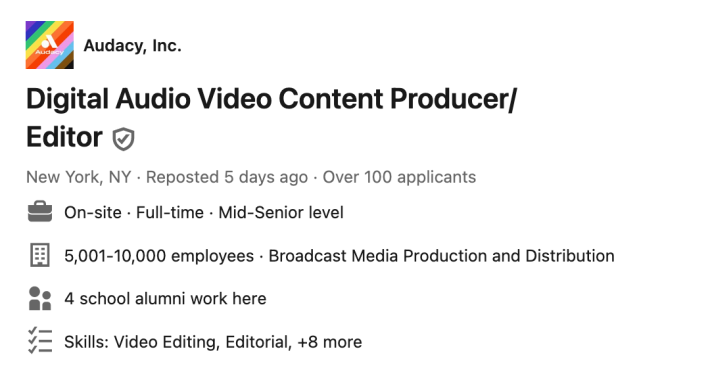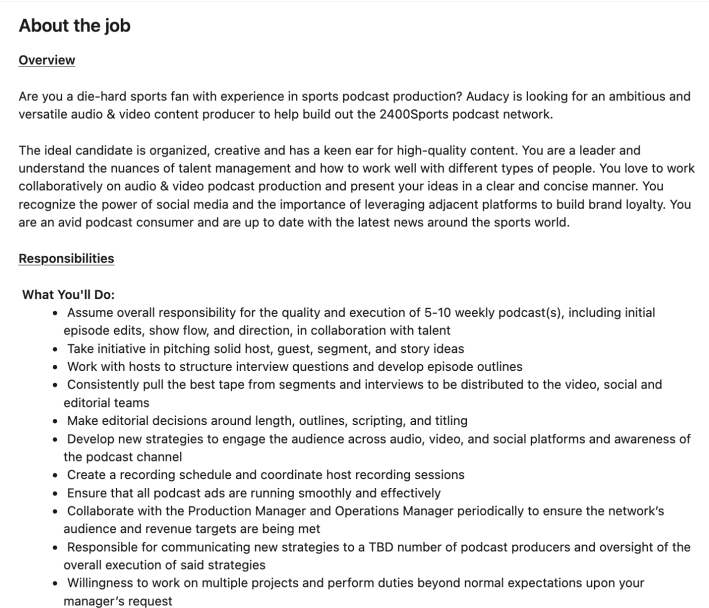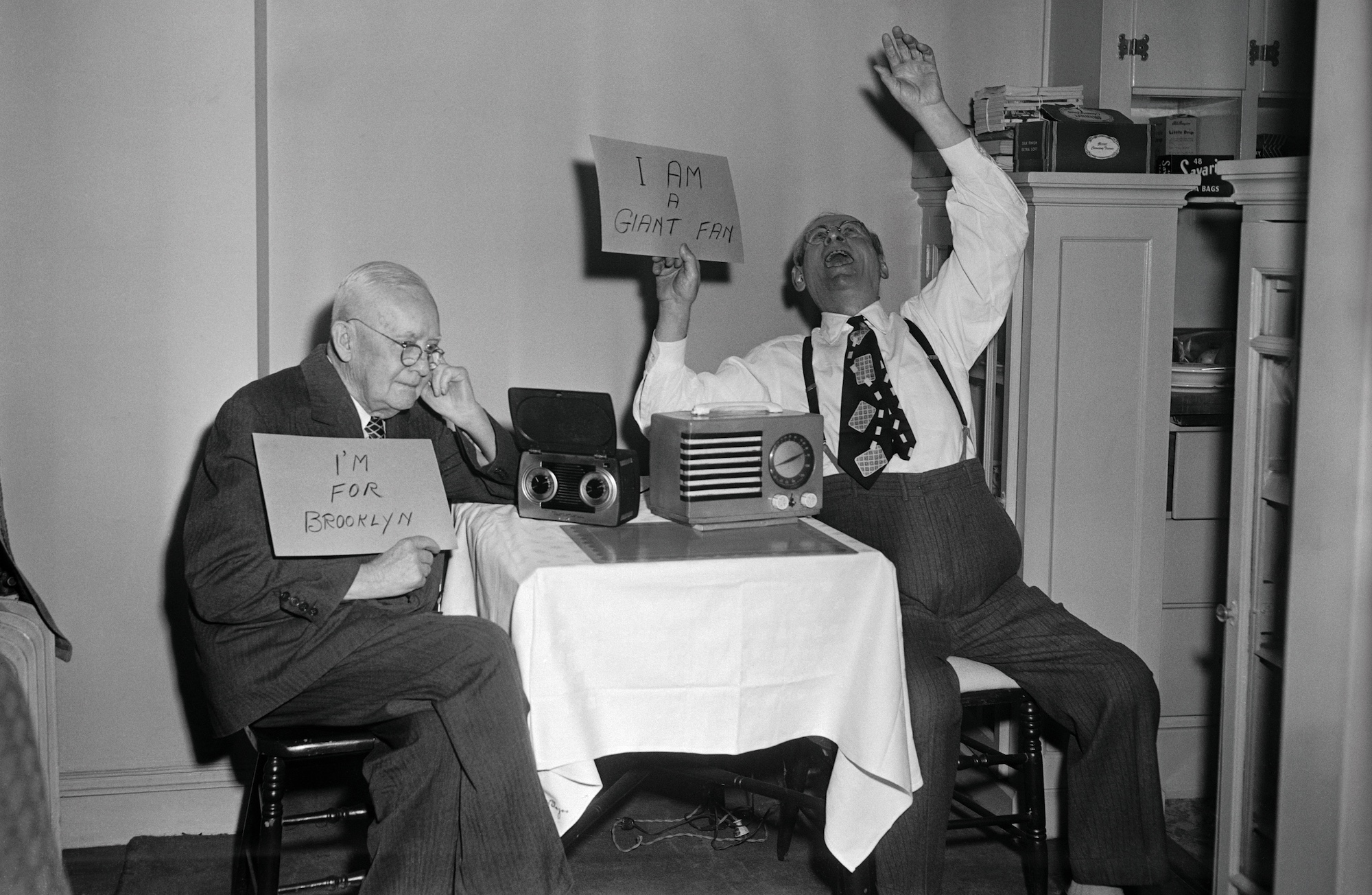Look at this 2014-ass job listing:


Audacy, which was at one point the second-largest radio company in the U.S. before filing for Chapter 11 bankruptcy, seems to be trying to pull a Ringer a decade later and cheaply staff up a sports podcast network. This job posting has been going around radio listservs, being mocked but also shared as one of the few living wages still available. It’s a depressing indicator of where the audio industry is going—or might already be.
“Digital Audio Video Content Producer/Editor.” That is four jobs. Audacy is certainly aware of the Association of Independents in Radio rate guide, the industry standard for defining job descriptions and titles as well as pay rates. In audio, an editor is extremely not the same thing as a producer, and Audacy knows this. To list both titles in the description for a single position is as unrealistic as it is alarming.
I’m going to do a bit of translating for you real quick: In the audio community, many of us refer to highly produced, thoughtfully edited podcasts as “radio.” Think This American Life and Radiolab and Serial. It’s a pretentious quirk but frustratingly one of the only ways to distinguish the different aesthetic sects that comprise the behemoth that is the industry. “Podcasting” might be two hosts shooting the shit; “radio” is extremely time-consuming and expensive to make, and there’s a range of shows that exist in the middle ground between the two. Chatty shows are fun to listen to, but there’s a reason why Serial was the first podcast to go viral.
Audio and video, meanwhile, are two completely different mediums with different production demands and completely different chops required. I know it’s trendy and cool to film your podcast tapings for YouTube and cut them up for Tiktok and Reels, but this is a practice that comes out of the influencer podcast tradition rather than the “radio” world. If you produce a podcast to be filmed, you can’t really edit it according to the needs of the audio because there’s a whole second medium to account for where the visuals dominate the experience. Lots of audio shops are doing the pivot-to-video dance because they apparently have not learned from previous mistakes. (It was peak podcast bubble and people were getting rich! No time to pay attention to what happened to that bubble.)
So: Podcasting, a medium as absurdly broad as “writing,” has come to stand for so many different types of product and craft levels, and the industry still struggles to differentiate the subgenres in a meaningful way, which leads to a collapsing of expectation on the part of consumers and leadership. A podcast is a podcast is a podcast, right? Who cares! Stop being so precious with your audio and ship it, baby!
Some things I can guarantee about these “5–10 weekly podcasts” this person will be expected by Audacy to produce: They will not be edited, or they will be edited poorly with AI. They will not be deeply researched, considered, or fact-checked. They will rely heavily on celebrity hosts who will be paid exorbitant amounts of money by a company that is cutting costs elsewhere and lowballing its employees. There will be very little storyboarding ahead of recordings, which, paired with the aforementioned celebrity hosts and lack of research and fact-checking and editing, means there will be a scandal in the first year of these shows’ existence. Someone will say something about how they’re snorting ivermectin and it’ll get through to the final cut and it’ll be a disaster because there’s no real quality control when one person is responsible for this many shows.
This is the equivalent of a blogger with an eight-post daily quota just sitting down to type whatever in order to get words on the page. It’ll fill the quota, sure, and some of it might even be funny or interesting, but the aggregate product is a mess when the editorial ambition is sheer volume rather than craft or point of view or any of the things that make art interesting and fulfilling.
What’s concerning here is that Audacy, a company that occupies a significant space in the constellation of audio companies that still exist, is sending the message that this kind of workload is acceptable in a job description, not just because five people got laid off and the last survivor is plugging the leaks with every finger and toe, but because the structure is designed that way. This job description reveals Audacy's vision for the industry, and when there are so few big guys left, it’s significant that one of them is turning back the clock in terms of quality, workload, and investment. This time around, however, they can’t claim they didn’t know what they were doing.






